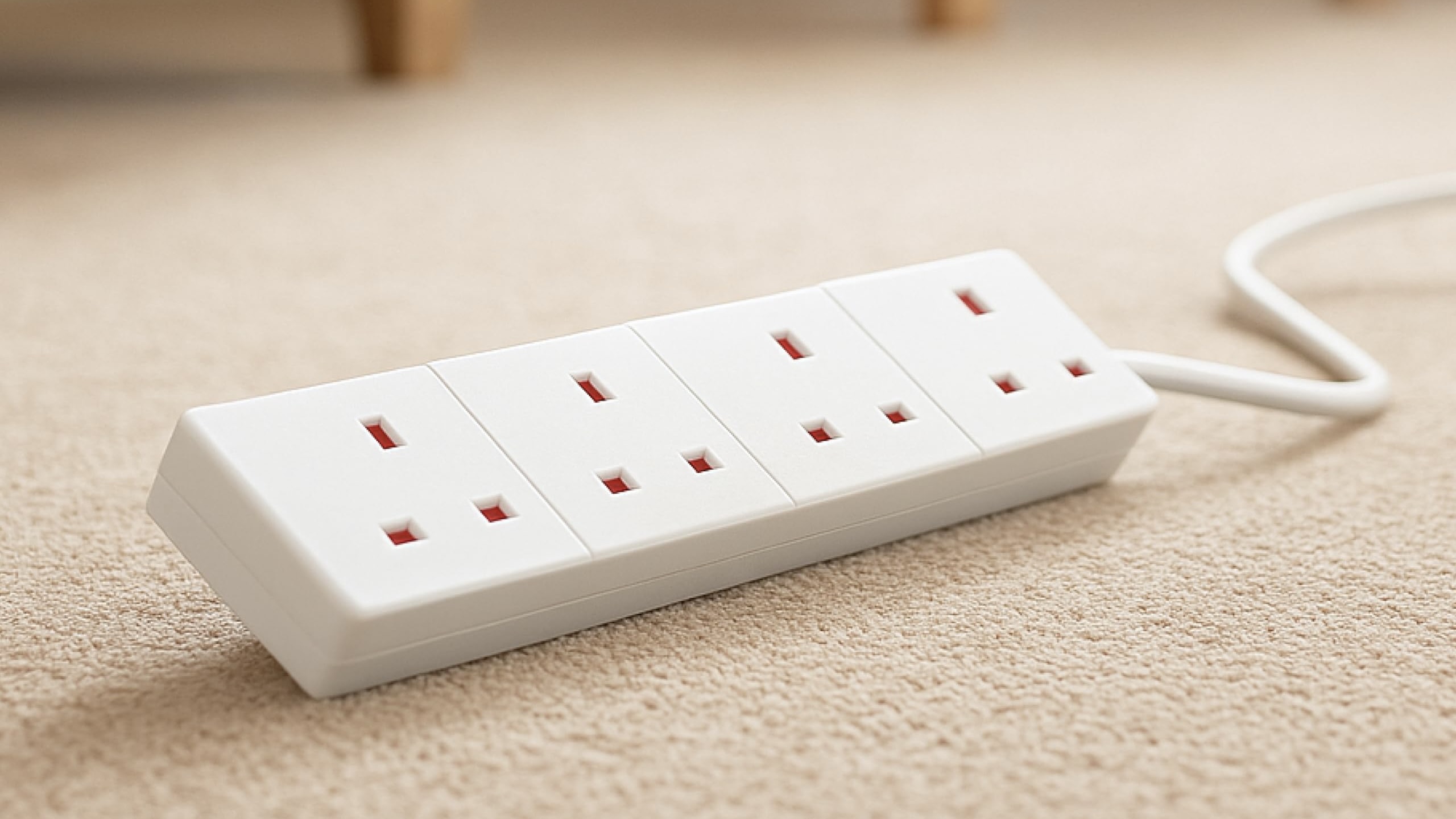3 kitchen appliances you should never plug into an extension lead, according to an expert
It's best to be safe than sorry


Get all the latest news, reviews, deals and buying guides on gorgeous tech, home and active products from the T3 experts
You are now subscribed
Your newsletter sign-up was successful
Extension leads are undeniably handy, especially they allow users to power up devices far from a wall socket. However, despite their convenience, millions of UK households are still unaware of the potential dangers. Experts warn that extension leads are often misused, and plugging in certain high-powered devices can actually pose a serious fire risk.
To find out more information, I spoke to energy efficiency expert Jamie Burns from reliability firm Ailsa. He shared the top three household items you should never plug into an extension lead, and why doing so could have some pretty dangerous consequences.
“The reason for not plugging some items into an extension lead is that each lead is rated to a maximum current and having high energy/current usage equipment plugged in could amount to the lead operating out with its design characteristics which in turn could lead to overheating and in some severe cases catching fire."
1. Microwave
The best microwaves might seem harmless, but they are actually one of the most power-hungry appliances in the home. Most microwaves require a steady, high-wattage supply to heat food safely, and plugging them into an extension lead can easily overload the cable.
To keep your kitchen safe, it’s best to plug your microwave directly into a dedicated wall socket that can provide stable power without overloading anything.
2. Refrigerators and freezers
Whilst they're definitely worth the investment, refrigerators and freezers run constantly, drawing a steady stream of electricity day and night. This continuous demand makes them unsafe to plug into an extension lead, as the prolonged load can overheat the cable and damage its insulation, increasing the risk of fire.
There’s also a higher chance of accidental disconnection, which could lead to food spoilage if the appliance loses power even briefly. For safety and reliability, always plug fridges and freezers directly into a wall socket with a dedicated circuit to keep them running smoothly and your food safely stored.
Get all the latest news, reviews, deals and buying guides on gorgeous tech, home and active products from the T3 experts
3. Washing machine
Washing machines are another powerful appliancs that should never be plugged into an extension lead. They use a lot of electricity and operate near water, which is a dangerous combination if power delivery isn’t stable.
To stay safe, always plug your washing machine directly into a properly grounded wall socket. It keeps the appliance running efficiently and greatly reduces the risk of fire or electric shock.

Lizzie is T3's Senior Staff Writer, covering the latest in smart home, lifestyle and beauty tech. From skincare gadgets to vacuum cleaners, she's your go-to for trends and top recommendations.
When not writing, Lizzie enjoys mooching around Bath, spending time with loved ones, or testing her review units – often during an enthusiastic cleaning spree!
You must confirm your public display name before commenting
Please logout and then login again, you will then be prompted to enter your display name.